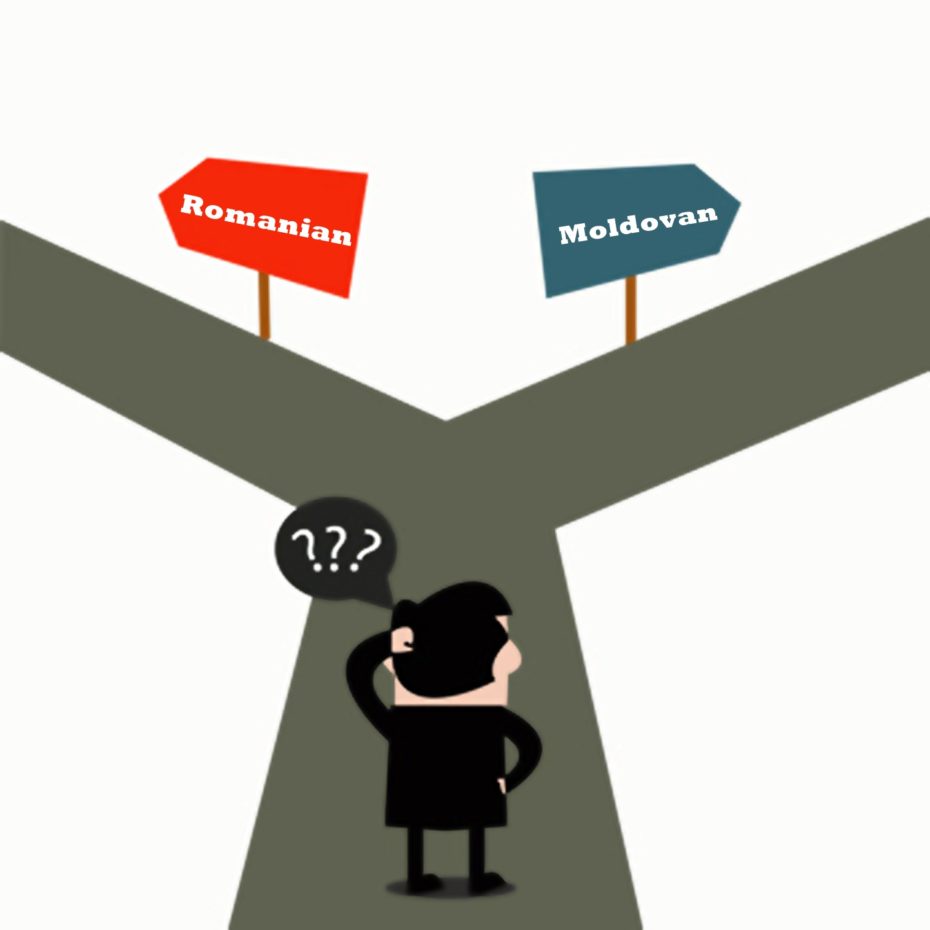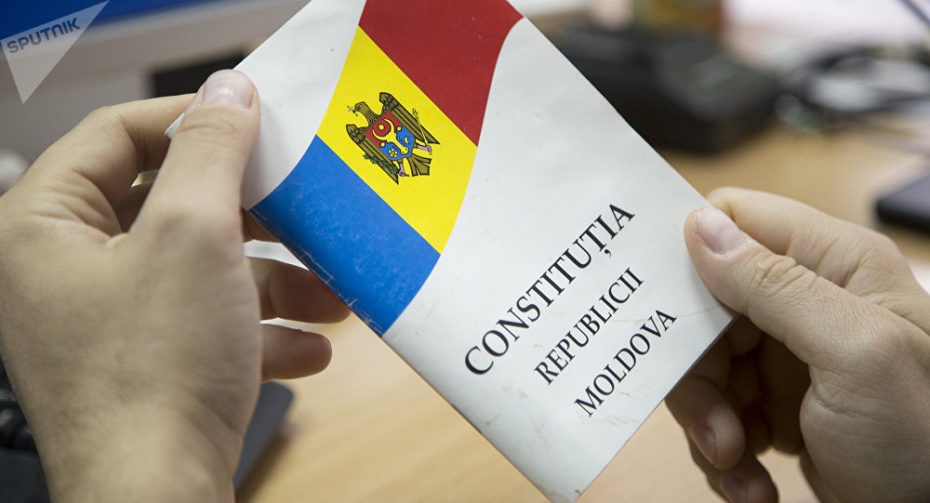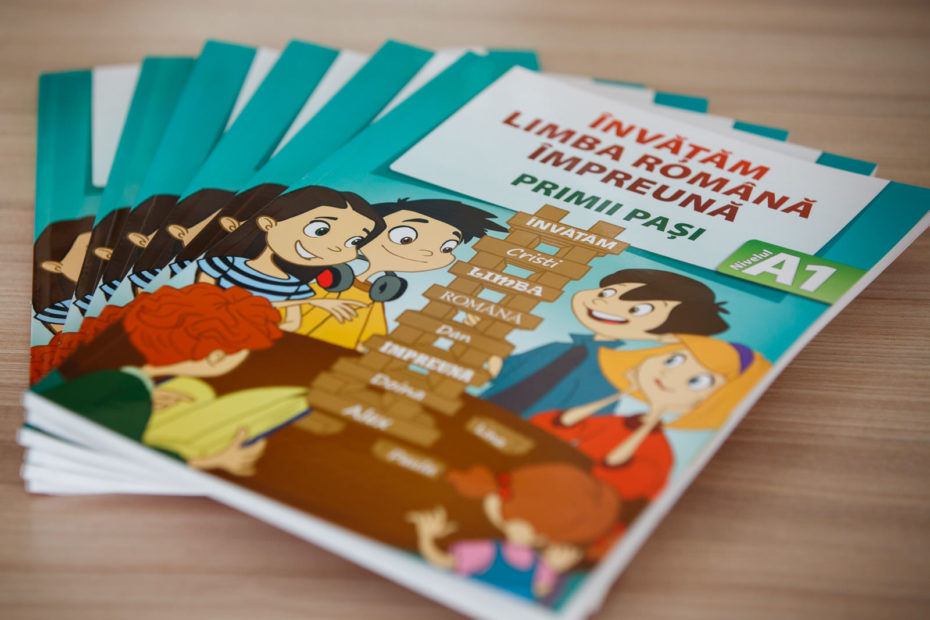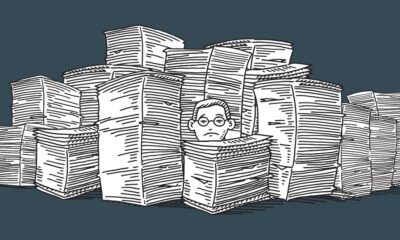Featured
What is the official language in Moldova and does the ‘Moldovan’ language actually exist?

If you are a Moldovan citizen, surely you had, at least once in your lifetime, the situation when you needed to specify for a foreigner what language you speak in your home country. If you are a foreigner who heard at least once about Moldova, certainly you asked a Moldovan native: “What language do you speak there? Moldovan?”
In any case, you heard about the eternal ping-pong game between the Romanian and the ‘Moldovan’ languages, which is one of the big social disputes in Moldova. When asked about that, some people don’t even know what to answer as the debates between the state officials, the changing laws and the opinion of experts is always contradictory. So, let’s look into it: What is the official language in Moldova and does the Moldovan language actually exist?

Source: sputnik.md
Let’s start from the beginning…
Over time, the today’s territory of the Republic of Moldova was annexed either to the Russian Empire (between 1812 and 1918) or to the Soviet Union (1940 – 1941 and 1944 – 1991). Therefore, the period of more than 150 years of russification was paid off and transformed the population that live between the Dniester and the Prut into a hesitant and ambivalent crowd that doesn’t know its history and provenience, and even what language they speak.
How is it possible? Well, there are several important measures that were taken for that. First, the Romanian language started to be eclipsed by the Russian language in the province of Bessarabia formed after 1812: the official papers were issued only in Russian; the school courses began to be taught predominantly in Russian until the Romanian language was totally forbidden; the idea of Romanian language and the Romanian nation was treated as a separate object by the politicians, historians, chroniclers, writers, journalists that served the Russian empire. The main goal of the Russian empire was to lead the population of the Bessarabia province into ignorance. It wasn’t so important to teach them Russian, but to demotivate them to learn the literary Romanian that had only the status of a provincial language used on daily-basis.
The invention of the ‘Moldovan’ language
The situation changed when the Soviet Union annexed Bessarabia (most of today’s Moldova) and the real russification process was performed. Then, a new concept, invented and tested before only on the territory of Transnistria, was applied – the Moldovan language. The hybrid language was formed of Romanian sub-dialect mixed with Russian words, written with Cyrillic alphabet (the literary Romanian uses Latin alphabet, as it is a Latin language). The main goal – the creation of a powerful separation instrument of the Moldovan population on the territory of Bessarabia from the rest of the Romanian population. The Moldovan Soviet Socialist Republic (MSSR) was declared as having a separate history, cultural values, language and traditions in order to incorporate it easier in the concept of ‘Homo Sovieticus’.
The central government of the Soviet Union aimed to get rid, as soon as possible, of the Romanian population that remained on the Bessarabian territory after the Soviet annexation in 1944. That was done through emigration, organised famine, mobilisation in the Red Army and massive deportations. The focus was to destroy any evidence of a relationship between Romanian and Moldovan populations that formed before one nation, for speeding up the russification process of the local population. The Romanian literature was declared alien and was confiscated, being replaced by Russian-Soviet propaganda literature. New teachers, loyal to the regime, were brought in schools, along with all Soviet courses: Soviet Union History, Literature and, of course, the Ideology of the Communist Party.
New Russian population was moved to the MSSR and to other countries that were part of the Soviet Union in order to promote the Soviet ideology and values, as well as to motivate the local population to learn the Soviet Union official language – Russian. Those that spoke this language were able to find better jobs and have a better life quality. Thus, the paradox appears here, as the Russian population established in MSSR adopted a colonialist attitude by understanding that they don’t need to learn the local language. Even today, when the Soviet Union doesn’t exist anymore, these people and some of their descendants still have the same attitude. This explains why foreign people that arrive in Moldova can hear both Romanian and Russian languages spoken by the population.
The expert’s opinion
According to Eugen Coșeriu, a Romanian philologist born in Moldova, there were few soviet countries that resisted the linguistic assault – Georgia, Armenia and the Baltic countries. In these post-soviet countries, the Russian language is not accepted as an official language. They managed to preserve their native languages and know for sure what language is that.
He explained that the so-called ‘Moldovan’ language is not even a separate sub-dialect (a subdivision of a dialect) of the Romanian language, belonging to the Moldovan sub-dialect spoken in the Romanian region called Moldova, as well as in Ukraine. The only difference to the way Romanian people, on the other side of the Prut, speak are the Russian words infiltrated in the vocabulary. However, that doesn’t make it a separate language.
The today’s language ping-pong in Moldova
The Declaration of Independence of the Republic of Moldova (1991 ) named Romanian the official language of the newly formed state – the Republic of Moldova. In 1994, the Constitution of the Republic of Moldova claimed that the national language of Moldova is Moldovan, based on the Latin alphabet. In 2013, the Constitutional Court of Moldova decided that the Declaration of Independence takes precedence over the Constitution and the state language is Romanian. However, the Moldovan Parliament members have not yet amended the text of Art. 13 of the Constitution. The phrase “Romanian language” will be introduced in the Constitution if at least 67 Parliament members support the draft law.
The President of Moldova – Igor Dodon declares himself a Moldovan patriot who speaks the ‘Moldovan’ language and promotes it even on the official website of the Presidency, whereas pupils in the Moldovan schools, including Dodon’s children, are officially taught the Romanian language.

Source: cancelaria.gov.md
It seems that the Romanian-Moldovan epopee initiated as an old trick of the Soviet Union will never come to an end. And it won’t, as long as people in the Republic of Moldova will be disinterested in their own history, culture and political situation, as long as they would sell their opinion and their right to vote for a piece of bread, and as long as they will let others tell them what to do with their life and their country.
The Moldovan language doesn’t exist. It’s like claiming that Brazilian people speak Brazilian, Austrian people have the Austrian language as the official language in their country or that Americans can ultimately separate their American English and declare it a separate language (even though some of them would like to). Moldovan language never existed. Now you know why.
Society
“They are not needy, but they need help”. How Moldovan volunteers try to create a safe environment for the Ukrainian refugees

At the Government’s ground floor, the phones ring constantly, the laptop screens never reach standby. In one corner of the room there is a logistics planning meeting, someone has a call on Zoom with partners and donors, someone else finally managed to take a cookie and make some coffee. Everyone is exhausted and have sleepy red eyes, but the volunteers still have a lot of energy and dedication to help in creating a safe place for the Ukrainian refugees.
“It’s like a continuous bustle just so you won’t read the news. You get home sometimes and you don’t have time for news, and that somehow helps. It’s a kind of solidarity and mutual support,” says Vlada Ciobanu, volunteer responsible for communication and fundraising.
The volunteers group was formed from the very first day of war. A Facebook page was created, where all types of messages immediately started to flow: “I offer accommodation”, “I want to help”, “I want to get involved”, “Where can I bring the products?”, “I have a car and I can go to the customs”. Soon, the authorities also started asking for volunteers’ support. Now they all work together, coordinate activities and try to find solutions to the most difficult problems.
Is accommodation needed for 10, 200 or 800 people? Do you need transportation to the customs? Does anyone want to deliver 3 tons of apples and does not know where? Do you need medicine or mobile toilets? All these questions require prompt answers and actions. Blankets, sheets, diapers, hygiene products, food, clothes – people bring everything, and someone needs to quickly find ways of delivering them to those who need them.
Sometimes this collaboration is difficult, involves a lot of bureaucracy, and it can be difficult to get answers on time. “Republic of Moldova has never faced such a large influx of refugees and, probably because nobody thought this could happen, a mechanism of this kind of crisis has not been developed. Due to the absence of such a mechanism that the state should have created, we, the volunteers, intervened and tried to help in a practical way for the spontaneous and on the sport solutions of the problems,” mentions Ecaterina Luțișina, volunteer responsible for the refugees’ accommodation.
Ana Maria Popa, one of the founders of the group “Help Ukrainians in Moldova/SOS Українці Молдовa” says that the toughest thing is to find time and have a clear mind in managing different procedures, although things still happen somehow naturally. Everyone is ready to intervene and help, to take on more responsibilities and to act immediately when needed. The biggest challenges arise when it is necessary to accommodate large families, people with special needs, for which alternative solutions must be identified.
Goods and donations
The volunteers try to cope with the high flow of requests for both accommodation and products of all kinds. “It came to me as a shock and a panic when I found out that both mothers who are now in Ukraine, as well as those who found refuge in our country are losing their milk because of stress. We are trying to fill an enormous need for milk powder, for which the demand is high and the stocks are decreasing”, says Steliana, the volunteer responsible for the distribution of goods from the donation centers.
Several centers have been set up to collect donations in all regions of Chisinau, and volunteers are redirecting the goods to where the refugees are. A system for processing and monitoring donations has already been established, while the volunteer drivers take over the order only according to a unique code.
Volunteers from the collection centers also do the inventory – the donated goods and the distributed goods. The rest is transported to Vatra deposit, from where it is distributed to the placement centers where more than 50 refugees are housed.
When they want to donate goods, but they don’t know what would be needed, people are urged to put themselves in the position of refugees and ask themselves what would they need most if they wake up overnight and have to hurriedly pack their bags and run away. Steliana wants to emphasise that “these people are not needy, but these people need help. They did not choose to end up in this situation.”
Furthermore, the volunteer Cristina Sîrbu seeks to identify producers and negotiate prices for products needed by refugees, thus mediating the procurement process for NGOs with which she collaborates, such as Caritas, World Children’s Fund, Polish Solidarity Fund, Lifting hands, Peace Corps and others.
One of the challenges she is facing now is the identifying a mattress manufacturer in the West, because the Moldovan mattress manufacturer that has been helping so far no longer has polyurethane, a raw material usually imported from Russia and Ukraine.
Cristina also needs to find solutions for the needs of the volunteer groups – phones, laptops, gsm connection and internet for a good carrying out of activities.
Hate messages
The most difficult thing for the communication team is to manage the hate messages on the social networks, which started to appear more often. “Even if there is some sort of dissatisfaction from the Ukrainian refugees and those who offer help, we live now in a very diverse society, there are different kind of people, and we act very differently under stress,” said Vlada Ciobanu.
Translation by Cătălina Bîrsanu
Important
#WorldForUkraine – a map that shows the magnitude of the world’s actions against Russian aggression

The international community and volunteers from all over te world have launched #WorldForUkraine as a platform that shows the magnitude of the world’s actions against the Russian aggression. In a digital world – it is an interactive map of public support of Ukrainians under the hashtag #WorldForUkraine – rallies, flash mobs, protests around the world. In the physical dimension – it is your opportunity to take to the streets and declare: “No to Putin’s aggression, no to war.”
„Today, along with the political and military support, emotional connection with the civilized world and truthful information are extremely important for Ukraine. The power to do it is in your hands. Join the #WorldForUkraine project and contribute to the victorious battle against the bloodshed inflicted on Ukraine by the aggression of the Russian Federation”, says the „about the project” section of the platform.
Go to the streets — Tell people — Connect and Unite — Become POWERFUL
Volunteers have launched #WorldForUkraine as a platform that shows the magnitude of the world’s actions against Russian aggression. In digital world – it is an INTERACTIVE MAP of public support of Ukrainians worldforukraine.net under the hashtag #WorldForUkraine – rallies, flash mobs, protests around the world. In the physical dimension – it is your opportunity to take to the streets and declare: “No to Putin’s aggression, no to war.” There you may find information about past and future rallies in your city in support of Ukraine. This is a permanent platform for Ukrainian diaspora and people all over the world concerned about the situation in Ukraine.
So here’s a couple of things you could do yourself to help:
* if there is a political rally in your city, then participate in it and write about it on social media with geolocation and the hashtag #WorldForUkraine
* if there are no rallies nearby, organize one in support of Ukraine yourself, write about it on social media with geolocation adding the hashtag #WorldForUkraine
The map will add information about gathering by #WorldForUkraine AUTOMATICALLY
Your voice now stronger THAN ever
All rallies are already here: https://worldforukraine.net
Important
How is Moldova managing the big influx of Ukrainian refugees? The authorities’ plan, explained

From 24th to 28th of February, 71 359 Ukrainian citizens entered the territory of Republic of Moldova. 33 173 of them left the country. As of this moment, there are 38 186 Ukrainian citizens in Moldova, who have arrived over the past 100 hours.
The Moldovan people and authorities have organized themselves quickly from the first day of war between Russia and Ukraine. However, in the event of a prolonged armed conflict and a continuous influx of Ukrainian refugees, the efforts and donations need to be efficiently managed. Thus, we inquired about Moldova’s long-term plan and the state’s capacity to receive, host, and treat a bigger number of refugees.
On February 26th, the Ministry of Labor and Social Protection of Moldova approved the Regulation of organization and functioning of the temporary Placement Center for refugees and the staffing and expenditure rules. According to the Regulation, the Centers will have the capacity of temporary hosting and feeding at least 20 persons, for a maximum of 3 months, with the possibility of extending this period. The Centers will also offer legal, social, psychological, and primary medical consultations to the refugees. The Center’s activity will be financed from budget allocations, under Article 19 of Provision no. 1 of the Exceptional Situations Commission from February 24th, 2022, and from other sources of funding that do not contravene applicable law.
The Ministry of Inner Affairs and the Government of Moldova facilitated the organization of the volunteers’ group “Moldova for Peace”. Its purpose is to receive, offer assistance and accommodation to the Ukrainian refugees. The group is still working on creating a structure, registering and contacting volunteers, etc. It does not activate under a legal umbrella.
Lilia Nenescu, one of the “Moldova for Peace” volunteers, said that the group consists of over 20 people. Other 1700 registered to volunteer by filling in this form, which is still available. The group consists of several departments:
The volunteers’ department. Its members act as fixers: they’re responsible for connecting the people in need of assistance with the appropriate department. Some of the volunteers are located in the customs points. “The Ministry of Inner Affairs sends us every day the list of the customs points where our assistance is needed, and we mobilize the volunteers”, says Lilia Nenescu.
The Goods Department manages all the goods donated by the Moldavian citizens. The donations are separated into categories: non-perishable foods and non-food supplies. The volunteers of this department sort the goods into packages to be distributed.
The Government intends to collect all the donations in four locations. The National Agency for Food Safety and the National Agency for Public Health will ensure mechanisms to confirm that all the deposited goods comply with safety and quality regulations.
The Service Department operates in 4 directions and needs the volunteer involvement of specialists in psychology, legal assistance (the majority of the refugees only have Ukrainian ID and birth certificates of their children); medical assistance; translation (a part of the refugees are not Ukrainian citizens).
According to Elena Mudrîi, the spokesperson of the Ministry of Health, so far there is no data about the number of Covid-19 positive refugees. She only mentioned two cases that needed outpatient medical assistance: a pregnant woman and the mother of a 4-day-old child.
The Accommodation Department. The volunteers are waiting for the centralized and updated information from the Ministry of Labor about the institutions offering accommodation, besides the houses offered by individuals.
The Transport Department consists of drivers organized in groups. They receive notifications about the number of people who need transportation from the customs points to the asylum centers for refugees.
The municipal authorities of Chișinău announced that the Ukrainian children refugees from the capital city will be enrolled in educational institutions. The authorities also intend to create Day-Care Centers for children, where they will be engaged in educational activities and will receive psychological assistance. Besides, the refugees from the municipal temporary accommodation centers receive individual and group counseling.
In addition to this effort, a group of volunteers consisting of Ana Gurău, Ana Popapa, and Andrei Lutenco developed, with the help of Cristian Coșneanu, the UArefugees platform, synchronized with the responses from this form. On the first day, 943 people offered their help using the form, and 110 people asked for help. According to Anna Gurău, the volunteers communicate with the Government in order to update the platform with the missing data.
Translation from Romanian by Natalia Graur

























